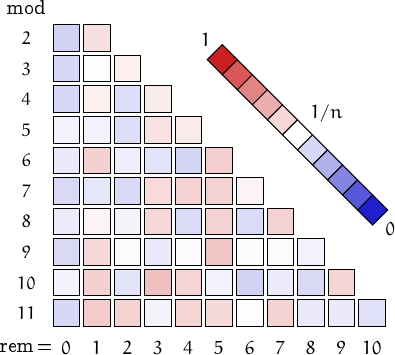The lonely numbers up to 1014 :
23, 53, 120, 211, 1340, 1341, 1342, 1343, 1344, 2179, 3967, 15704, 15705, 16033, 19634, 19635, 24281, 31428, 31429, 31430, 31431, 31432, 31433, 38501, 58831, 155964, 203713, 206699, 370310, 370311, 370312, 370313, 370314, 370315, 370316, 370317, 492170, 1272749, 1357264, 1357265, 1357266, 1357267, 2010800, 2010801, 2010802, 2010803, 2010804, 2010805, 2010806, 2010807, 4652428, 4652429, 4652430, 10938023, 12623189, 20831422, 20831423, 20831424, 20831425, 20831426, 20831427, 20831428, 47326799, 47326800, 47326801, 47326802, 47326803, 122164858, 142414669, 162821917, 163710121, 325737821, 1131241763, 1791752797, 3173306951, 4302407528, 4302407529, 4302407530, 4302407531, 4302407532, 4302407533, 4302407534, 4302407535, 4302407536, 6807940367, 7174208683, 8835528511, 10726904846, 10726904847, 10726904848, 10726904849, 10726904850, 11179888193, 15318488291, 25056082298, 25056082299, 25056082300, 25056082301, 25056082302, 25056082303, 25056082304, 25056082305, 25056082306, 25056082307, 25056082308, 25056082309, 25056082310, 25056082311, 25056082312, 25056082313, 25056082314, 25056082315, 42652618572, 42652618573, 42652618574, 42652618575, 45241670743, 113482615613, 138465682247, 303371455488, 303371455489, 303371455490, 303371455491, 304599508788, 304599508789, 304599508790, 304599508791, 304599508792, 304599508793, 304599508794, 313455525683, 343834606051, 491856414677, 1346294311034, 1346294311035, 1346294311036, 1346294311037, 1346294311038, 1346294311039, 1346294311040, 1362810282439, 1480975873513, 2614941710924, 2614941710925, 5551890283531, 7177162612042, 7177162612043, 7177162612044, 7177162612045, 7177162612046, 7177162612047, 7177162612048, 7177162612049, 7177162612050, 9156364643509, 13829048560042, 13829048560043, 13829048560044, 13829048560045, 13829048560046, 13829048560047, 13829048560048, 13829048560049, 13829048560050, 13829048560051, 13829048560052, 13829048560053, 13829048560054, 13829048560055, 13829048560056, 13829048560057, 13829048560058, 13829048560059, 19581334192782, 19581334192783, 19581334192784, 19581334192785, 19581334192786, 19581334192787, 19581334192788, 19581334192789, 19581334192790, 19581334192791, 19581334192792, 19581334192793, 19581334192794, 19581334192795, 19581334192796, 19581334192797, 19581334192798, 19581334192799, 19581334192800, 19581334192801, 19581334192802, 19581334192803, 19581334192804, 19581334192805, 19581334192806, 26923643849953, 90874329411884, 90874329411885, 90874329411886, 90874329411887, 90874329411888, 90874329411889, 90874329411890, 90874329411891, 90874329411892, 90874329411893, 90874329411894, 90874329411895.
Distribution of the remainders when the numbers in this family are divided by n=2, 3,..., 11. (I took into account 211 values, from 23 to 90874329411895).
| n\r | 0 | 1 | |||||||||
|---|---|---|---|---|---|---|---|---|---|---|---|
| 2 | 93 | 118 | 2 | ||||||||
| 3 | 63 | 71 | 77 | 3 | |||||||
| 4 | 46 | 58 | 47 | 60 | 4 | ||||||
| 5 | 40 | 40 | 37 | 48 | 46 | 5 | |||||
| 6 | 32 | 43 | 33 | 31 | 28 | 44 | 6 | ||||
| 7 | 25 | 27 | 25 | 33 | 35 | 35 | 31 | 7 | |||
| 8 | 24 | 27 | 25 | 29 | 22 | 31 | 22 | 31 | 8 | ||
| 9 | 19 | 25 | 23 | 21 | 23 | 32 | 23 | 23 | 22 | 9 | |
| 10 | 20 | 25 | 18 | 31 | 23 | 20 | 15 | 19 | 17 | 23 | 10 |
| 11 | 15 | 24 | 22 | 18 | 21 | 20 | 19 | 22 | 17 | 17 | 16 |
A pictorial representation of the table above

Imagine to divide the members of this family by a number n and compute the remainders. Should they be uniformly distributed, each remainder from 0 to n-1 would be obtained in about (1/n)-th of the cases. This outcome is represented by a white square. Reddish (resp. bluish) squares represent remainders which appear more (resp. less) frequently than 1/n.
e-mail: info -at- numbersaplenty.com • Privacy notice • engine limits